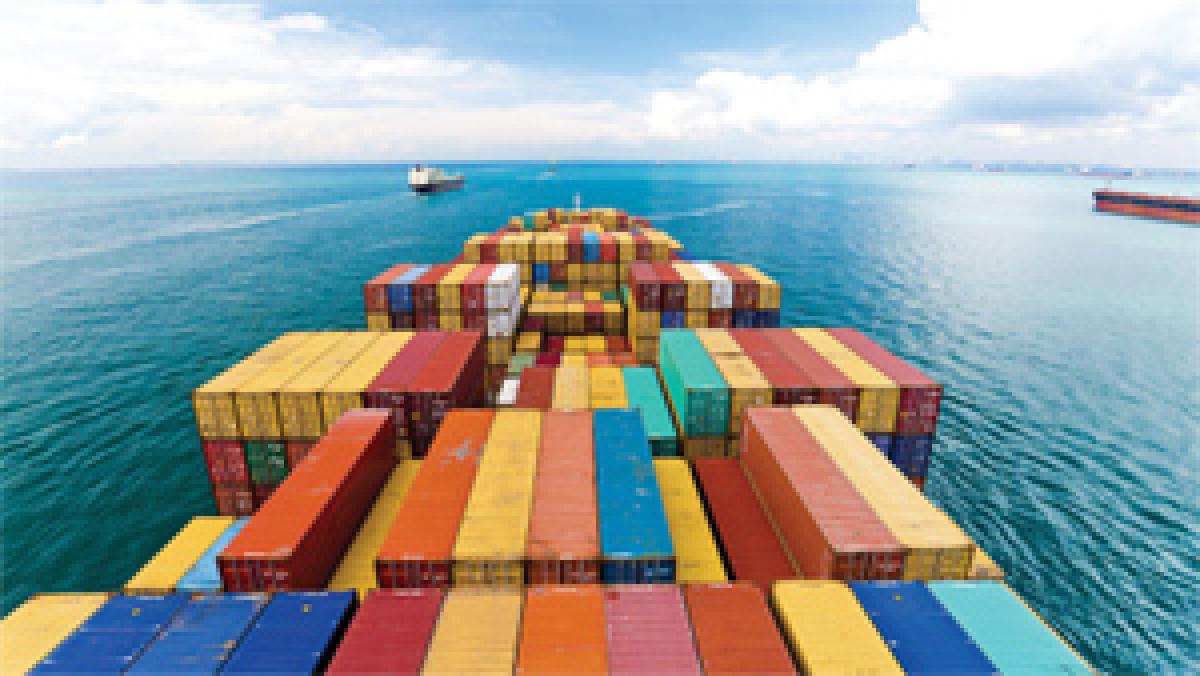Live
- Vagdevi Jr College student selected for national basketball tourney
- Maoist area committee member arrested
- Collectorate staff protest attack on DC
- Villagers urge authorities to continue launch service even after construction of bridge
- MLA Padmavathi launches free lunch for readers
- Police high-handedness sparks outrage in Kodangal
- Khichi elected mayor of Delhi
- Sports enthusiasts encouraged to focus on achieving their goals
- SC agrees to hear plea related to Delhi pollution
- Srikakulam: Cooperative Week celebrations take off
Just In

Rumours are doing the rounds that India is likely reconsider its offer of zero tariffs to the members of Regional Comprehensive Economic Partnership (RCEP) which is in the making.
Rumours are doing the rounds that India is likely reconsider its offer of zero tariffs to the members of Regional Comprehensive Economic Partnership (RCEP) which is in the making. India initially proposed zero duty on over 80 per cent of its tariff lines for the Asean members, on around 65 per cent tariff lines for Japan and Korea, and on about 42 per cent tariff lines for non-FTA countries.
Médecins Sans Frontières, along with other health organisations, appeals for the removal of harmful intellectual property provisions that could potentially raise treatment costs by creating new forms of monopolies and delaying the entry of affordable generics in the market. If the intellectual property provisions proposed by Japan and South Korea are accepted, access to essential medicines will be restricted for millions of people across Asia and the world who rely on life-saving affordable generics made in India.
The RCEP trade deal threatens to undermine India and China’s role as major suppliers of generic medicines for people in the developing world, including both low- and middle-income countries such as Cambodia, China, India, Indonesia, Laos, Myanmar, the Philippines and Thailand.
Regional Comprehensive Economic Partnership (RCEP) is a proposed free trade agreement (FTA) between the ten member states of the Association of Southeast Asian Nations (ASEAN) (Brunei, Burma (Myanmar), Cambodia, Indonesia, Laos, Malaysia, thePhilippines, Singapore, Thailand, Vietnam) and the six states with which ASEAN has existing FTAs (Australia, China, India, Japan,South Korea and New Zealand).
RCEP negotiations were formally launched in November 2012 at the ASEAN Summit in Cambodia. RCEP is viewed as an alternative to the Trans-Pacific Partnership trade agreement, which includes the United States but excludes China, according to Wikipedia. RCEP will cover trade in goods, trade in services, investment, economic and technical co-operation, intellectual property, competition, dispute settlement and other issues.
The agreement will encompass trade in goods and services, economic and technical issues, intellectual property and investments, and dispute settlement mechanisms. From India’s point of view, the RCEP presents a decisive platform which could influence its strategic and economic status in the Asia-Pacific region and bring to fruition its “Act East Policy.” It is expected to be an ambitious agreement bringing the five biggest economies of the region – Australia, China, India, Japan and South Korea – into a regional trading arrangement, observes The Diplomat.

© 2024 Hyderabad Media House Limited/The Hans India. All rights reserved. Powered by hocalwire.com







